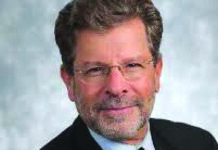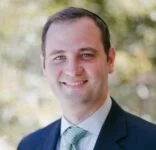
By Bob Lankin
What is “cash bail” exactly?
Nearly a half-million people are sitting in jails each day in the United States, even though they are legally innocent of the crime with which they have been charged. (In our legal system, we are innocent until proven guilty).
Most jurisdictions in the country operate a cash bail system in which the court determines the amount of money that a person has to pay to secure their release from detention. The cash amount serves as collateral to ensure that the defendant appears in court.
In effect, cash bail criminalizes poverty, as people who cannot afford bail are detained while they await trial.
Accordingly, the person is incarcerated before trial, but not because of guilt; the person is incarcerated for being poor. This criminalizes poverty, disproportionately hurting people of color, the unemployed and other marginalized people.
Another defendant who is accused of a crime under the same circumstances gets released because this defendant has, or can obtain, the money to pay bail.
Washington, D.C. was the first or one of the first jurisdictions in the United States to end cash bail. When a person is first arrested there, they are not automatically released. The person is brought before a judge to determine the disposition before the trial. If a judge determines that the person is too dangerous to society, the person is incarcerated. All others are released on the promise to appear for trial.
In the last decade, New Jersey also ended cash bail on a similar model.
While various jurisdictions have different results with ending cash bail, as a rule of thumb, the average has been that around 85% of all arrested people are released before trial. More than 80% of those people appear on time for trial, and perhaps half of the others will appear in the weeks thereafter.
This result is not significantly worse than the failure-to-appear rates in jurisdictions that retain cash bail.
With new technology including telephone call reminders, jurisdictions ending cash bail have found good results. DC Superior Court Judge Truman Morrison, quoted in The Washington Post in 2016, put it this way: “There is no evidence you need money to get people to court.
It’s irrational, ineffective, unsafe and profoundly unfair.”
If you think about it, cash bail is not a good system to make us safer.
People who oppose ending it say that it is too dangerous to release arrested people and that they should stay incarcerated. But in the jurisdictions that have ended cash bail, judges have the authority not to release people they deem too dangerous. So, we are really talking about the people who the judges don’t deem too dangerous
Do we accept the principle that a person is innocent until proven guilty? If so, all of these arrested people are innocent. Do we really want to incarcerate innocent people before trial?
Whether you do or don’t, cash bail frees those with money to get released and incarcerates the rest. So we are not incarcerating people for the offense; we are incarcerating them for being poor.
Whether our modern rabbis are talking about it or not, that is against Judaism.
Jewish writings do not talk much about incarcerating people; after all, those writings were written over more than 3,000 years. Modern prisons are barely 200 years old. But Jewish writings are loaded with teachings about not persecuting poor people:
Deuteronomy 15:11: You shall open wide your hand to your brother, to the needy and the poor in your land.
Proverbs 31:8-9: Speak up for those who cannot speak for themselves, for the rights of all who are destitute. Speak up and judge fairly; defend the rights of the poor and the needy.
Isaiah 1:17: Learn to do right; seek justice. Defend the oppressed.
No reader can make a case that Judaism condones persecuting poor people, but that is what cash bail does.
This is not a technicality. According to the Prison Population Initiative, around 470,000 unconvicted people are incarcerated in the United States. If 85% were released before trial, we would incarcerate around 400,000 less on any given day.
It is hard to find another law that, if changed, would result in a greater impact in ending mass incarceration. In Pennsylvania, we have 63 county jails where a majority of the inmates are there because they can’t post bail. Abolishing cash bail would enable us to close 30 or 40 of them.
One of the most important principles of Judaism is not persecuting and oppressing poor people. Accordingly, it is time for all of us to stand up against the principle of cash bail.
Bob Lankin is an advocate and speaker for criminal justice reform. He serves as the outside coordinator of the Jewish congregation at SCI Phoenix in Montgomery County and serves on the Criminal Justice Initiative for the Jewish Council on Public Affairs.







Mr. Lankin, you need to use some logic and do some research as you do not fully understand those in jail on a daily basis.
Yes, about 80% of those booked into jails are released pretrial. That is true in state jurisdictions that use monetary bail as well. Federally about 80% are detained pretrial and they do not use monetary bail.
According to FBI UCR statistics, there are about 10 million arrests each year. There are about 1.2 violent crimes each year resulting in about 5 million violent crime victims each year.
Since about 200,000 defendants are arrested each week, 200,000 are also released each week or the jail population would increase exponentially. On a daily basis, about 5% of those arrested each year are in jail on any given day.
Go to almost any jail and actually look at those being held you find terribly egregious crimes along with many that have holds for variations violations, warrants, transfers, etc.
If you check the New Jersey jail data, you will find NJ detains about 20% pretrial. Some counties detain over 40% of those arrested. In DC you will find about 91% of those detained have felony charges.
I can provide all the charts and data that New Jersey and DC provides on their sites if you want it. You would also note that both NJ and DC have much higher costs and more personnel for fewer inmates over the past 5 years.
It is naive to believe 85% of those in jail could be safely released.
Ken Burke furthers the marketing points of the private prisons that profit off of cash bail, and would like to spend all of our tax dollars to line their pockets rather than make us safer or save us money.
It’s very simple: If a person is a criminal threat, keep them locked up without bail. If a person is not a criminal threat, release them until trial without cash.
Everything else are bad excuses to take our tax dollar money and give them to the private corporations.
You can cite all the Scripture you want but what we are seeing now in Democratic run cities is that no cash bail is allowing violent criminals to roam and commit further crime.
Wonder how you would feel if one of those thugs released without bail would harm, rape or kill one of your loved ones. I venture to guess you would change your tune
Liberals like Jane Rosen and Ken Burke would allow a criminal to pay their way out of jail to rape or kill. Can you imagine?! Paying your way out of jail?! If a criminal is a threat to rape or kill, there should be no bail period – not cash bail – no bail period. Jane Rosen wants to blame Democrats and be devisive. Stop cash bail! No bail for criminals at all.